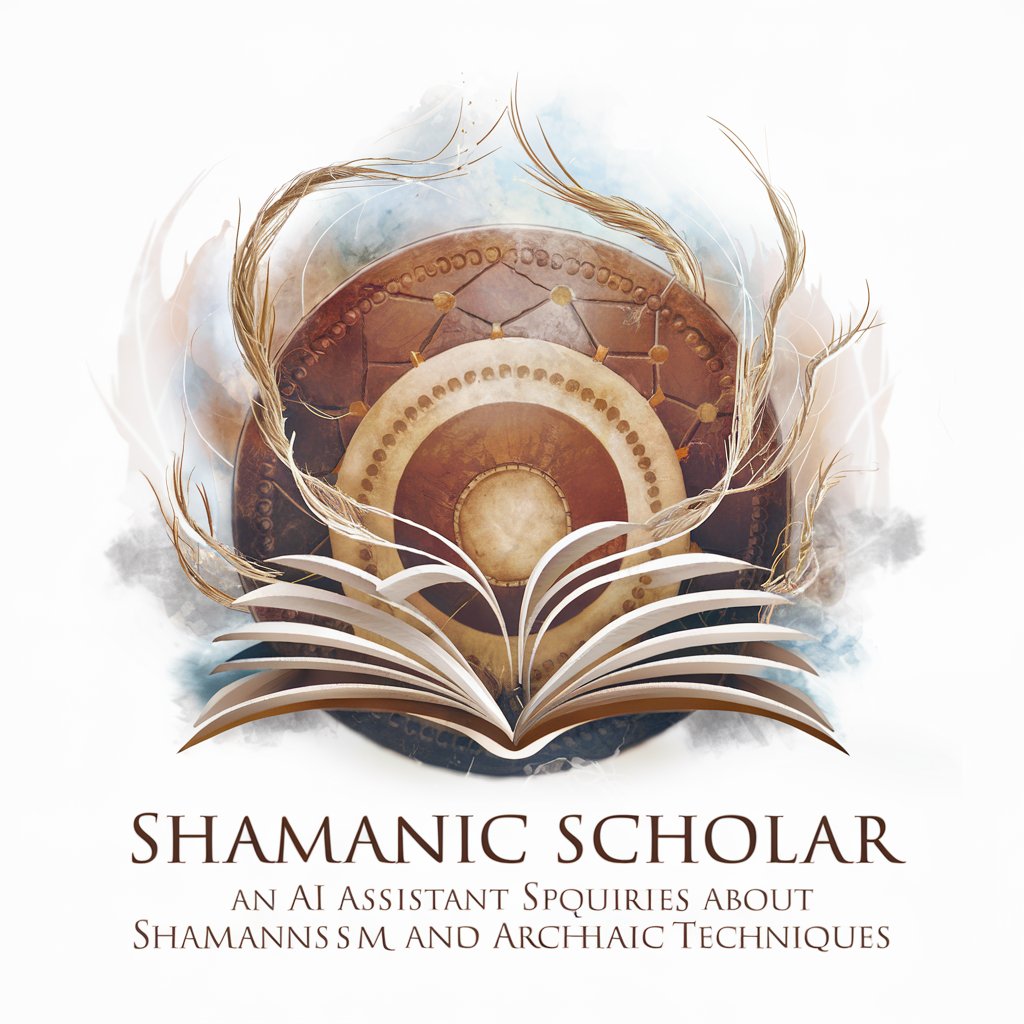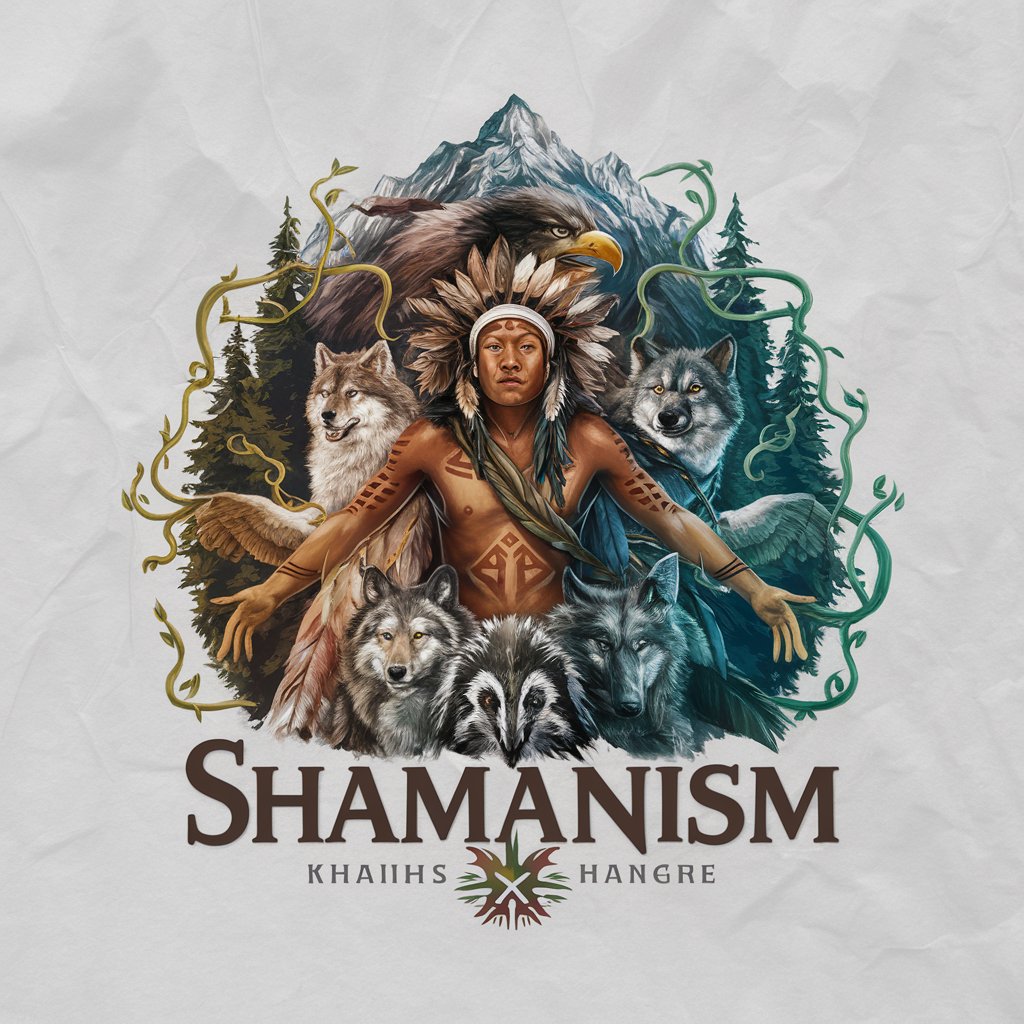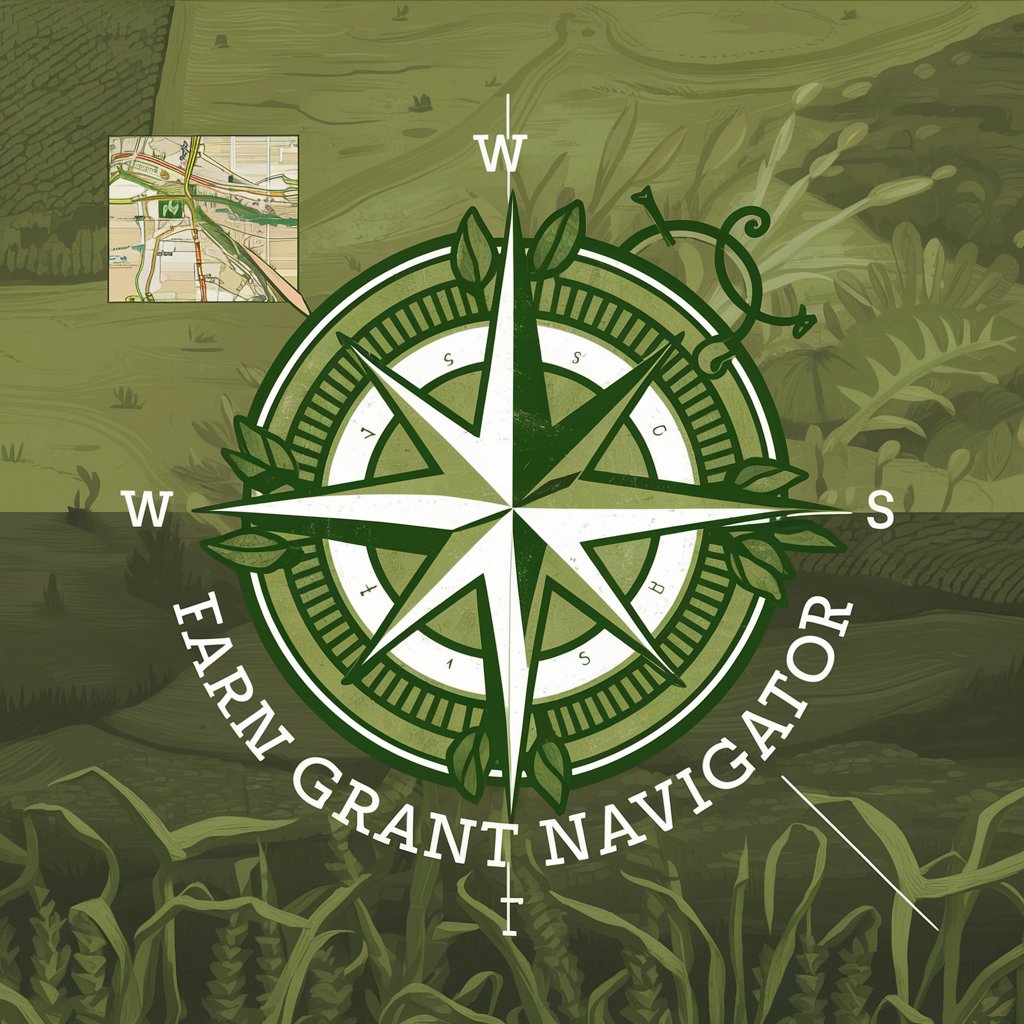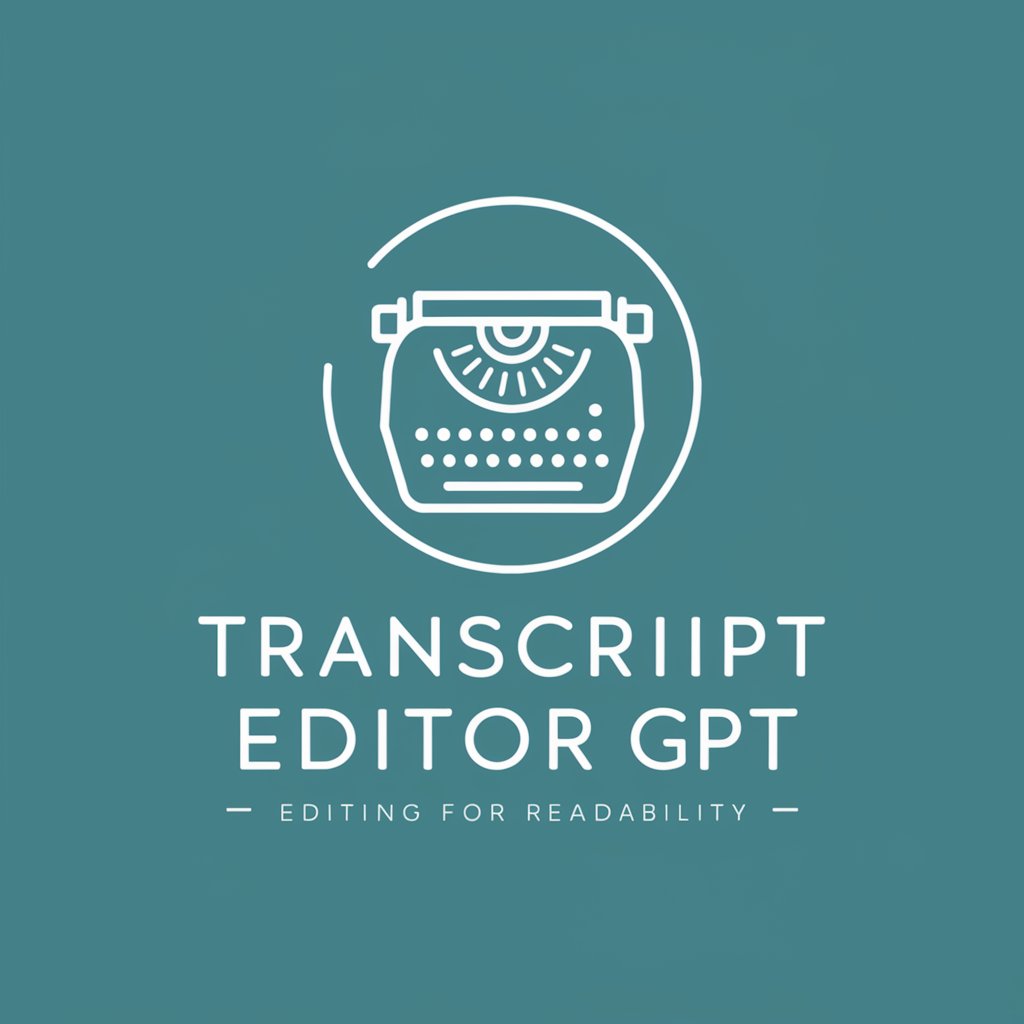Shamanic Scholar - expert in Eliade's Shamanism

Welcome to Shamanic Scholar, your guide to Eliade's insights.
Unveil the mystique of shamanism
Can you explain the significance of...
What does Eliade say about the role of...
How does 'Shamanism and Archaic Techniques' describe...
What are the key arguments in the chapter on...
Get Embed Code
Shamanic Scholar Introduction
Shamanic Scholar is a tailored GPT (Generative Pre-trained Transformer) designed to assist users with in-depth inquiries about 'Mircea Eliade - Shamanism and Archaic Techniques of Ecstasy'. It integrates contents from the book and external information about Mircea Eliade, aiming to offer nuanced insights into shamanism and its historical and cultural significance. This model provides both direct quotes and interpretations from the book, and when the book's content does not directly answer a query, it employs internet research to provide additional information. For example, a user interested in the psychological aspects of shamanic practices could receive detailed explanations supported by both the book's content and contemporary psychological studies on similar phenomena. Powered by ChatGPT-4o。

Main Functions of Shamanic Scholar
Detailed Book Insights
Example
Offering synopses, key arguments, and conclusions for specific chapters of 'Shamanism and Archaic Techniques of Ecstasy' upon request.
Scenario
A user preparing for an academic presentation on shamanic symbolism can receive an overview and detailed analysis of relevant sections of the book.
Contextual Research
Example
Providing historical and cultural context that surrounds the topics discussed in Mircea Eliade’s works.
Scenario
A student studying anthropology queries about the influence of Siberian shamanism on global religious practices, and the Shamanic Scholar supplements book content with external scholarly articles and historical data.
Comparative Analysis
Example
Comparing shamanic practices across different cultures and times to draw broader conclusions about their roles and transformations.
Scenario
A researcher examining the evolution of ecstatic practices could learn about the parallels between Siberian shamanism and North American indigenous spiritual practices, supported by both Eliade’s interpretations and additional academic resources.
Ideal Users of Shamanic Scholar
Academics and Researchers
Individuals in academic fields related to religious studies, anthropology, and history who require comprehensive, scholarly insights into shamanic practices and theories. These users benefit from both direct quotes from Eliade's texts and contextual information that aids in the development of theses or academic publications.
Students
University students studying courses on religion, cultural studies, or anthropology who need detailed explanations and interpretations of shamanic topics covered in Eliade’s book for essays or exams.
General Enthusiasts
Readers with a keen interest in shamanism and historical religious practices looking for a deeper understanding of the subject matter beyond basic definitions and summaries. They benefit from the detailed explanations and nuanced exploration of themes.

Usage Guide for Shamanic Scholar
Step 1
Visit yeschat.ai for a free trial, no login or ChatGPT Plus required.
Step 2
Select 'Shamanic Scholar' from the available GPT options to start your session.
Step 3
Type your question related to Mircea Eliade's work on Shamanism or relevant topics to receive an informed response.
Step 4
Utilize the detailed information provided by Shamanic Scholar to explore academic or personal research projects.
Step 5
For further deep dives, reference the text snippets and additional resources suggested by the tool.
Try other advanced and practical GPTs
Logo Artisan
Craft Your Brand with AI Power

Slide Wizard
Empower Your Slides with AI

Criador de Imagens de Futebol
Capture Football's Finest Moments

Shamanic Insights
Explore Shamanic Wisdom, AI-Powered

Mestre da Memória
Boost Your Brainpower with AI

FitnessGPT
Empowering Your Fitness Journey with AI

Olavo de Carvalho
Harness the power of unwavering AI analysis.

FarmHand
Growing Smarter with AI Power

Farmhand
Elevate Your Apps with AI-Powered Insights

Free Homestead Design Tool
Cultivate Sustainability with AI

Farm Grant Navigator
Cultivating success with AI-driven grant aid

Transcript Editor
Perfect Your Transcripts with AI

Shamanic Scholar Q&A
What can Shamanic Scholar tell me about Mircea Eliade's views on shamanic initiation?
Shamanic Scholar can provide detailed insights from Eliade's work, focusing on the symbolic death and rebirth that shamanic initiates undergo, representing a profound transformation of their being and role within their communities.
How does Shamanic Scholar assist with understanding Eliade's methodology?
Shamanic Scholar helps clarify Eliade's interdisciplinary approach, combining religious history, anthropology, and psychology to explore shamanism's complexity and cultural significance.
Can Shamanic Scholar compare Eliade’s thoughts with other scholars on shamanism?
Yes, it can contrast Eliade's interpretations of shamanism with other academic views, highlighting differences in theoretical approaches and conclusions about shamanic practices and beliefs.
What unique features does Shamanic Scholar offer for students studying religions?
Shamanic Scholar provides specific analysis and direct quotes from Eliade's works, aiding students in understanding the academic depth and nuances of shamanic studies within the broader field of religious studies.
How does Shamanic Scholar help with interpreting shamanic symbols?
It offers interpretations based on Eliade’s extensive research, explaining how symbols like the World Tree or the shaman's drum are used within various shamanic traditions to represent connections between the earthly and the spiritual.
